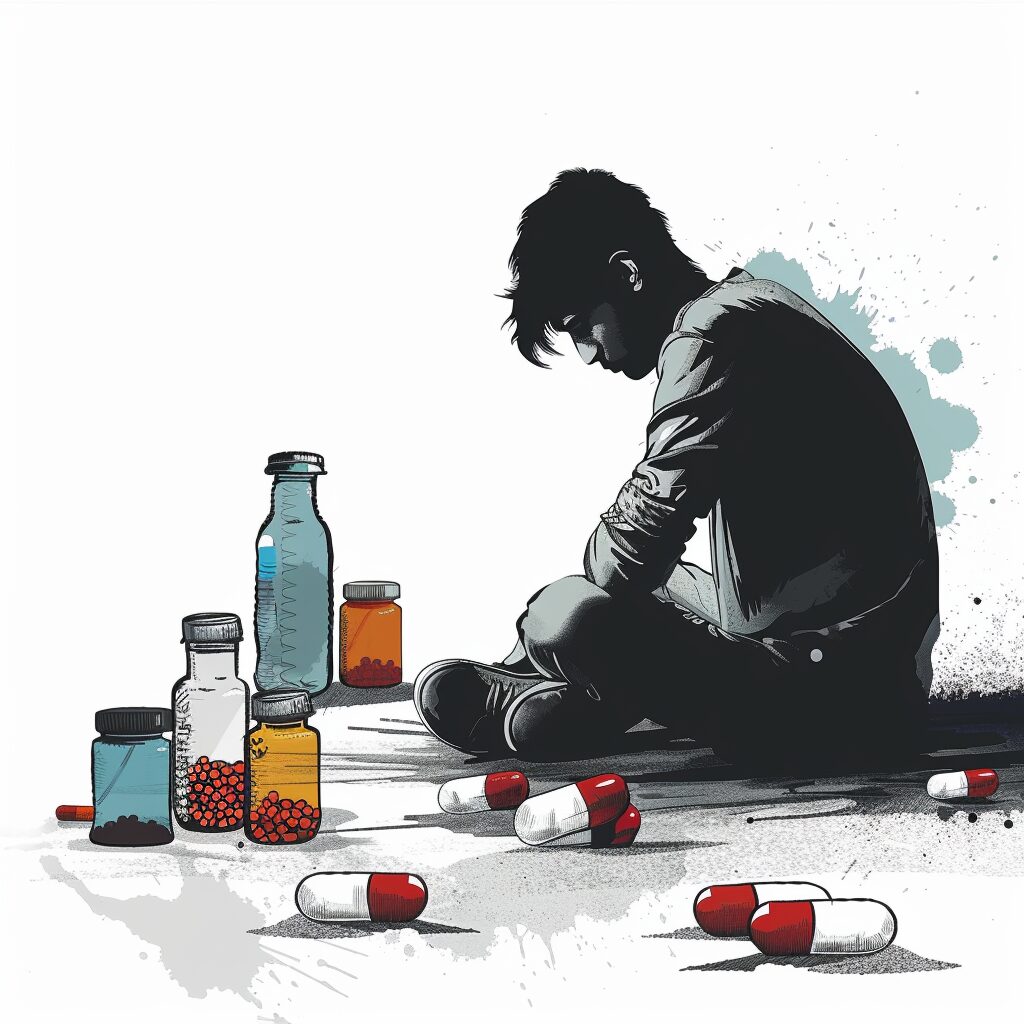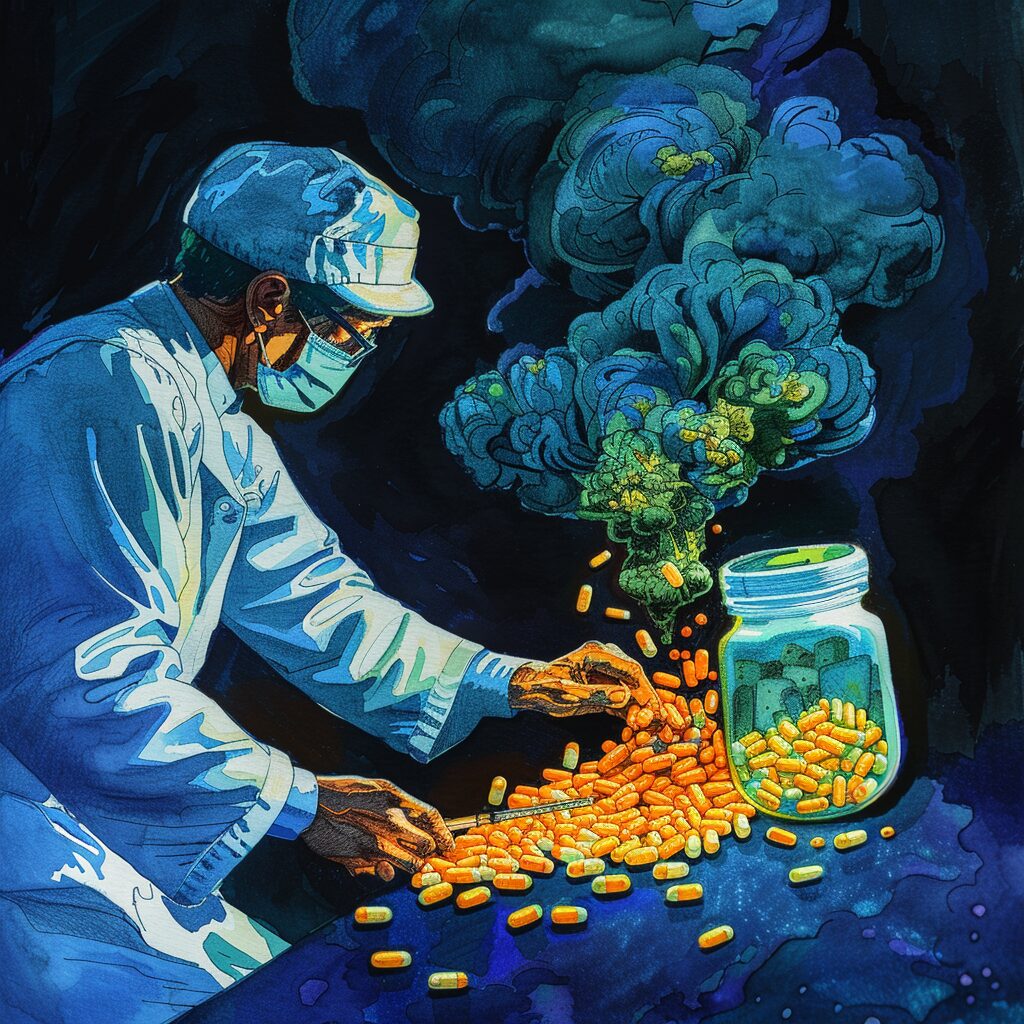Key Takeaway:
- Family support is crucial for those who struggle with addiction. Family members can provide the emotional and practical support that is needed during the recovery journey.
- Family therapy can greatly benefit both the addict and their loved ones. It helps them understand and deal with the challenges that come with addiction, and fosters a sense of unity and teamwork.
- Family involvement in addiction recovery comes with challenges, such as the risk of codependency or conflicts between family members. It’s important for families to educate themselves and seek professional help if needed.
Have you been searching for ways to help your loved one along the path of addiction recovery? This blog will discuss the essential role that family plays in addiction recovery and the positive impact they can have. You’ll discover practical and meaningful ways to support your family member on their journey back to health.
Understanding Addiction
Understanding addiction is crucial to comprehending the role of family in addiction recovery. With addiction being a complex and multidimensional disease, it is important to gain a thorough understanding of it. In this part of the article, we will dive into what addiction really is and how to identify it. We will also take a closer look at some of the most common types of addiction that exist in our society today and how they impact individuals and their families. Addiction is a serious issue that requires careful attention, so let’s explore this topic together.

Definition of Addiction: What is Addiction and How to Identify it?
Have you ever wondered what addiction is and how to identify it? It’s easy to fall prey to addictive behaviors without even realizing it. Addiction is a brain disorder characterized by compulsive behavior despite harmful consequences. It is a chronic and persistent condition that affects people from all walks of life, regardless of age, gender, or social status.
Addiction works by altering the reward system in the brain, producing cravings for certain substances or activities such as drugs, alcohol, gambling, or even eating. The reasons behind its working include genetic factors, environmental triggers, mental health conditions (such as depression), and developmental or childhood trauma.
It is important to be able to identify addiction in yourself or your loved ones. Some common signs of addiction include:
- Withdrawal symptoms like irritability, restlessness or anxiety when the substance is not available
- Using more of the substance over time
- Failing to control usage
- Prioritizing obtaining and using the substance over other activities like work or personal relationships
- Continuing use despite negative consequences
While these are some typical signs of addiction, it’s possible for individuals to exhibit entirely different indicators based on their personal experience with the particular addictive behavior. For example, a person might show tendencies towards compulsive shopping instead of drug abuse but still suffer from an addictive disorder.
I remember being addicted to caffeine during my college years. Even though I would get terrible headaches if I didn’t have coffee in the morning, I didn’t consider myself addicted until my roommate pointed out how irritable and anxious I became when I hadn’t had any coffee all day. Looking back now, it’s clear that caffeine was controlling my mood and behavior.
Now that we better understand addiction and its signs let’s dive into specific types of addiction found commonly in society today through my personal experiences battling them head-on.
Types of Addiction: Common Addictions in Society Today and Their Impacts
Addiction is a common problem that has plagued society for decades. Whether it’s substance abuse, gambling, or technology addiction, they all have significant impacts on an individual’s life and the people around them. These addictions are the focus of the article with the title ‘Types of Addiction: Common Addictions in Society Today and Their Impacts‘.
The first type of addiction discussed in the article is substance abuse, which can range from alcohol to recreational drugs like cocaine and heroin. Substance abuse can cause physical and mental health problems, social isolation, financial instability, legal issues and even death. The second type is behavior addiction – this includes gambling, technology use such as video games or social media that can lead to compulsive-like behaviour that affects daily life.
The third type is food addiction where people develop unhealthy eating habits and indulge in excessive amounts of unhealthy snacks or meals leading to obesity and other severe health conditions. The fourth type is sex addiction- where individuals obsess over sexual activities leading to disruptions in their lives while affecting their relationships with others.
Understandably, identifying someone who suffers from various types of addictions early helps prevent aggravating their situation. Hence it becomes crucial for family or friends who see these signs to help connect the victims with rehabilitative centres without judging or offending them.
Pro Tip: Several therapeutic means can help combat addiction issues experienced by individuals; suppose you see signs of any form of obsession within yourself or someone around you; Please speak up about it without judgment but show empathy towards them while implores them to get medical help.
The Role of Family in Addiction Recovery: Making tough decisions isn’t ideal for anyone to handle alone when addicted loved one depends on you. Let me share personal experiences wherein helping family member struggling with addictive tendencies required more than exchanging good advice looking forward to sharing my journey towards the light at the end of those dark tunnels.
The Role of Family in Addiction Recovery
Addiction is a debilitating disease which does not just affect the one who is suffering from it. It is a family disease that impacts everyone who is connected to the sufferer, either directly or indirectly. In my experience as a substance abuse counselor, I have seen the pivotal role families can play in the addiction recovery process.
In this section, we would take a closer look at the role of family in addiction recovery. We will explore in detail the significance of family support, the benefits of family therapy, and how education can enable family members to better understand addiction as a disease.

Family Support: The Key to Successful Addiction Recovery
The recovery process for individuals battling addiction can be an uphill battle filled with obstacles and triggers. However, one of the most crucial factors in a successful recovery is family support. Family support is the key to successful addiction recovery.
Family support plays a vital role in the intervention, treatment, and post-treatment process for addiction. It provides a deeper level of understanding and care, allowing individuals to feel supported and loved through their journey. The support system acts as a motivation for the person to stay committed to sobriety and helps them navigate through any relapses or setbacks they may face.
Several reasons contribute to how family support works so effectively. The family can help identify warning signs, encourage positive behaviors, establish boundaries, provide financial assistance, participate in counseling sessions, and provide accountability, all contributing positively towards a person s recovery journey.
Additionally, studies have shown that individuals who have strong ties with their families tend to recover faster than those who lack familial relationships. Furthermore, they tend to have better long-term outcomes after completing treatment programs.
It’s important to understand that family support is not only limited to biological relatives but can also include friends and chosen family members who play a significant role in an individual’s life.
Support from loved ones is irreplaceable when overcoming addiction. With their continuous encouragement and efforts towards your well-being comes strength for you to battle this adversity successfully.
Don’t underestimate the power of having your loved ones by your side during your recovery journey; let them know how much they mean to you by actively involving them in your progress updates and sharing milestones!
Curious what else Family Therapy has in store? Let me give you my experience…
Family Therapy: The Significance of Working together
Family therapy involves working together as a family unit to address issues that affect the family’s dynamic. The significance of working together lies in the understanding that families are interconnected, and everyone’s actions or decisions can impact the entire family. Family therapy is helpful in addressing addiction recovery as it acknowledges the role of family dynamics in managing addiction.
Family therapy typically involves several members of the family in counseling sessions. Family members learn how to communicate more effectively with one another through guided sessions that help them understand potential triggers or areas that may have contributed to their loved one’s addiction. By identifying these areas and working together towards a common goal, families can create a supportive environment that aids addiction recovery.
Research has shown that families who participate in therapy sessions are more likely to experience better outcomes than those who do not engage in counseling. The importance of support systems play significant roles in reducing the rate of relapse and promote long-term recovery from addiction. Therefore, while individualized treatment is crucial for addiction recovery, incorporating family therapy into a comprehensive treatment plan ensures lasting success. Learn more about the role of family in addiction recovery.
In summary, working together as a family is essential for addressing addiction recovery adequately. Through participation in counseling sessions together, families learn communication techniques and provide support, which proves crucial for reducing relapse rates and promoting overall positive outcomes.
Don’t let your loved one suffer alone; consider participating in family therapy today to aid in their addiction recovery journey fully. Remember, true healing comes through collective efforts!
“Are you tired of feeling helpless while your loved one battles addiction? Discover how understanding the disease of addiction through education can empower you and your family’s journey towards healing.”
Family Education: Understanding the Disease of Addiction
Family Education: Understanding the Disease of Addiction is a crucial aspect of addiction recovery that has been gaining widespread recognition in recent times. The importance lies in not just having addicts themselves educated about their condition but also their families and loved ones who form an integral part of the recovery process.
The concept behind Family Education is to provide family members with insights into how the disease of addiction works, which can help them understand why their loved ones engage in self-destructive behaviors. This understanding can encourage empathy, improve communication, and reduce feelings of shame, guilt, or anger resulting from misunderstandings or miscommunication.
Family Education involves programs and counseling sessions aimed at educating families about various aspects of addiction like its symptoms, causes, consequences, treatment options, relapse prevention techniques, and support group resources. These programs may be conducted in groups or on a one-to-one basis and may include individualized therapy sessions with qualified counselors.
According to research findings, integrating family members into the addiction recovery process not only benefits addicts but also enhances resilience among family units by reducing stress levels caused by negative emotions like anxiety or depression. These interventions are found to improve involvement in aftercare programs and increase post-treatment sobriety rates.
I remember attending a Family Support Group meeting where I met Jim (name changed), a father who had lost his son to drug overdose. Through his tears and heartfelt words that morning, he told us how helpless he felt about his son’s addiction despite loving him immensely. He said how no amount of pleading or punishment could get through to his son until it was too late. That day was life-changing for me as it made me realize how important it is for family members to participate actively in their loved one’s journey towards recovery.
As Jim reminded us that morning,” ‘All we have is each other’ So let’s stick together!”
Benefits of Family Involvement in Recovery
When it comes to addiction recovery, the influence of family can make a significant impact. In fact, research has shown that family involvement can lead to improved outcomes, increased motivation, and reduced relapse risk. In this section, we ll dive into the benefits of family involvement in addiction recovery, exploring the positive impact of family support on the recovery process. We will explore the role that family can play in keeping the addict motivated, as well as the importance of preventing relapse. Ultimately, recognizing the crucial role that family can play in addiction recovery can help individuals and families work together towards a lasting and successful recovery.

Improved Outcomes: The Positive Impact of Family on Addiction Recovery
I have written an article on the topic ‘Benefits of Family Involvement in Recovery’. This heading is aptly suited as family plays a pivotal role in helping individuals recover from addiction. Improved outcomes refer to the positive change that family involvement brings in addiction recovery.
As per research, patients who involve their families in their treatment plans are more likely to complete their treatment and remain sober for longer periods post-treatment. Family involvement provides emotional support, motivates the patients to stay committed to their goals, and improves communication within the family dynamics. When a patient is surrounded by their loved ones during recovery, it boosts their self-esteem and confidence, making them feel valued and cared for.
Family involvement works because families are central to our lives. They bring consistency, structure, and support that patients need in order to successfully recover from addiction. Families can help establish boundaries around negative behaviors related to substance abuse or addiction, offer encouragement when progress seems slow, celebrate achievements along the way, and work with professional therapists or counselors to develop strategies for managing triggers or relapse risks.
It’s worth noting that there are times when family relationships can be strained due to addiction-related issues, making it harder for everyone involved. However, even in these cases involving families can still help improve treatment outcomes if approached carefully and thoughtfully.
If you’re looking for ways to involve your family member in your recovery process, here are some valuable suggestions:
- Involve family members during therapy sessions.
- Practice open communication.
- Show gratitude.
- Set realistic expectations.
- Take responsibility.
Inviting your family into your therapy session fosters understanding about recovering addicts’ behavioral traits and teaches them various coping mechanisms that will aid them throughout the process of rebuilding trust with each other. Honest communication among members builds trust foundation between one another resulting in lesser chances of setbacks. Appreciating their assistance helps both parties stay motivated and committed to the recovery process. Realistic expectations also help families understand that addiction recovery is a long, ongoing process with appropriate milestones for benefits. And finally, acknowledging one’s responsibility in their journey motivates them and helps build healthier relationships.
If you’re here looking for information on Involved Motivation: The Role of Family in Keeping the Addict Motivated, we’re glad to say it’s coming up next!
Increased Motivation: The Role of Family in Keeping the Addict Motivated
Increased Motivation: The Role of Family in Keeping the Addict Motivated
Addiction is a complicated disease, which makes recovery challenging for addicts. For an addict to undergo successful recovery, motivation plays a crucial role- it needs to come from within as well as outside. One’s external motivation comprises their surroundings, relationships, and emotional connections- family being an essential aspect of that.
Family members can provide a sense of hope and encouragement, providing necessary motivation for addicts to maintain their sobriety.
Firstly, family empowerment comes by having someone who believes in the addict’s ability to stay sober. Experts have pointed out that having someone who recognizes the effort one makes towards recovery gives them a sense of achievement.
Secondly, family members offer support by showing love and concern towards the addict. By exhibiting authentic support without being judgmental or critical about relapse chances or negative behavior patterns; recovering addicts are motivated not to disappoint those they love.
Thirdly, along with individual success stories after recovering from addiction, hearing other survivors’ stories has been shown to boost long-term recovery possibilities.
Fourthly, familial support is continuous across time and continuity given that families stay together and stick through challenging times.
Lastly, when an addict achieves sobriety goals amid the absence of familial support initially, involving loved ones in drug rehabilitation efforts later helps reinforce their passion for quitting.
A true example of how important family involvement can be involved a heroin addiction survivor named David* had struggled alone until his sister noticed something different about him for months. She approached him gently about check-ins with a psychologist he would attend out-of-town weekly before insisting on accompanying him weekly sessions locally so that she could show her active support and involvement in his journey towards lasting sobriety. The gesture helped build up his confidence in himself as well as understand the level he inspired his beloved sister.
“Reduced Relapse Risk: The Importance of Family in Preventing Relapse”
Next up – let me share my favorite holistic approaches for families struggling with loved ones who are recovering: like not losing hope, providing scheduled and reasonable family activities that are inclusive to erring loved ones, and a commitment to learning sound communication tactics.
Reduced Relapse Risk: The Importance of Family in Preventing Relapse
Reduced Relapse Risk: The Importance of Family in Preventing Relapse
Preventing relapse is a crucial aspect of addiction recovery, and family involvement can play a significant role in achieving this goal. Studies have shown that individuals who involve their families in their recovery process have a significantly lower risk of experiencing relapses compared to those who do not.
Family involvement works by providing a support system for the individual struggling with addiction. It creates an environment where the individual feels loved and supported, which helps to reduce stress levels and increase feelings of self-worth. This support system also allows family members to learn about addiction and how best to support their loved one during the recovery process.
In addition to providing emotional support, family involvement plays an essential role in helping individuals identify triggers and develop coping strategies. Identifying triggers can be difficult when an individual is working alone, but with the help of family members, it becomes much easier. Coping strategies can be developed collaboratively within the family setting – this may include practicing mindfulness or engaging in positive social activities to prevent boredom or isolation.
Interestingly, recent research has revealed that involving children in the recovery process provides additional benefits. Children often serve as motivators for parents who are struggling with addiction while offering unconditional love and support throughout the recovery journey.
To promote effective family involvement in recovery, here are some tips that may be helpful:
- Conduct educational sessions for all family members to learn about addiction and its impact.
- Encourage open communication among all involved parties – this will help identify any issues early on.
- Identify potential triggers together as a team – including children if applicable.
- Foster healthy relationships by participating in sober activities together.
- Celebrate milestones along the way – small victories provide motivation and reinforce commitment.
As we see that involving families is beneficial in preventing relapses; attempts must be made from both ends towards building stronger bonds between each other during these times of difficulties.
Next up is ‘Challenges of Family Involvement in Recovery’ – let us face it; nothing is easy, and family involvement in addiction recovery comes with its fair share of challenges.
Challenges of Family Involvement in Recovery
As someone who has experienced addiction and the journey of recovery, I know firsthand how crucial family support can be in the recovery process. However, there are many challenges that come with involving family in recovery. In this part, we will explore some of the common obstacles that families face when participating in a loved one’s addiction recovery journey. These sections shed light on codependency risks that come with enabling an addict s behavior, the conflict that arises between family members, and the financial burden of addiction recovery on the family. Through these insights, we hope to provide families with the tools and resources they need to navigate these challenges and ultimately help their loved ones achieve long-term recovery.

Codependency: The Risks of Enabling the Addict s Behavior
Codependency: The Risks of Enabling the Addict’s Behavior
Living with a person who has an addiction is challenging. Whether it is alcohol, drugs or gambling, you might feel helpless, frustrated, and angry seeing them destroy their lives. What can be even more problematic is co-dependency. In such cases, you enable the addict’s behaviour while ignoring your needs and well-being.
Codependency refers to the distorted mental state in which a person becomes fixated with meeting another person’s needs that sometimes they forget about their own. It works through a cycle of interaction where somebody tries to rescue someone from their situation continuously. However, the response encourages the addictive behaviour to become worse.
Codependency often arises primarily because of how someone grew up, surrounding themselves around an addicted family member who hadn’t understood healthy boundaries nor allowed anyone else to have any degree of control over anything within the household. Many individuals raised in households with addicts develop one type of addiction or another or something resembling codependency; they lack healthy communication patterns hooked on shame and denial as protection mechanisms.
In contrast, codependents are control freaks silently managing people or events to make sure everything remains stable and under control because they fear any loss of control will lead to chaos So always remember- You cannot solve anybody else’s problems better than they can. Your focus must be on your interests and your emotional support instead of dedicating all your efforts towards ‘fixing’ others around you.
Pro Tip: Instead of engaging in co-dependent behaviors like lecturing, scolding or offering help which already isn’t working out anyway- Ask open-ended questions about what they want from you without judging them for what happened in past situations. Listen to them when possible rather than trying desperately at making things better by doing all things yourself which only further degrades equilibrium between both parties.
Conflict: Managing the Tensions and Disagreements Between Family Members
Next up, we’ve got the other side of the fence- Conflicts between family members regarding addiction recovery. Stay tuned for tips on how to manage such tensions in your household.
Conflict: Managing the Tensions and Disagreements Between Family Members
Managing conflicts between family members during addiction recovery can be a challenging task. Family members often have different opinions and perceptions about addiction and recovery that may lead to disagreements and tensions. These conflicts arise from various reasons, such as the severity of addiction, the extent of family involvement in the addiction, conflicting personal beliefs, or communication breakdown.
Conflict management involves identifying sources of disagreement, acknowledging differing perspectives, and seeking common ground. It requires active listening skills, empathy, patience, and an openness to exploring alternative solutions. It can be done through individual or group therapy sessions with a trained counselor or mediator.
One valuable technique for managing conflict is narrative therapy. This therapy involves exploring individual experiences and stories related to addiction and recovery to promote understanding, healing and positive change. By sharing their experiences in a non-judgmental setting, family members can gain insight into each other’s perspectives and develop new ways of seeing things.
Pro Tip: When managing conflicts between family members during addiction recovery, keep in mind that everyone has a unique journey towards healing. Instead of focusing on who is right or wrong, prioritize collaboration and empathy to find solutions that work for everyone.
Next up: Addiction not only affects those struggling with it but also has ripple effects on the family’s financial stability. So how do families cope with the costs of addiction recovery? Let’s find out!
Financial Burden: The Cost of Addiction Recovery for the Family
The financial burden of addiction recovery can be overwhelming for families who want to support their loved one’s journey towards sobriety. Addiction recovery programs can be quite costly, and the cost adds up quickly, making it an expensive endeavor for many families. From inpatient treatment to counseling and therapy sessions, these expenses are ongoing and can last for months or even years.
Unfortunately, addiction recovery is not a one-time payment process. Often, there are follow-up appointments, medication costs, and continued care that patients need even after completing their initial treatment program. The high costs of addiction recovery often make it challenging for people to access these services, limiting their chances of getting help.
Moreover, the quality of addiction treatment is often linked to its price point. Exceptional care is costly because it requires experienced personnel, medication management that accounts for individual differences among patients and tailor-made therapy plans. In contrast, budget-friendly programs may rake in more profits by diluting the quality of care they provide.
It’s essential for families to understand the financial burden involved in addiction recovery so they can plan accordingly. Researching insurance options or contacting treatment facilities regarding payment assistance programs are two ways to alleviate some of this financial stress.
One suggestion could be setting up a fundraiser on social media platforms like GoFundMe pages where people can donate money towards addiction treatment costs; people who have experienced similar situations themselves or have witnessed someone struggle with addiction are typically more willing to offer emotional support if they know how much it helps. Moreover, creating a network of addicts’ families could create an environment where every family looks out for each other when going through such challenging times.
The financial burden associated with addiction recovery not only causes strain on budgets but also puts emotional pressure on household members supporting patient recovery daily – the constant worry about whether they will be able to pay bills while providing adequate support consumes energies that should perhaps be used differently.
Summary of Benefits and Challenges: Importance of Family Involvement in Addiction Recovery
The role of family in addiction recovery is an extremely important aspect that cannot be overlooked. The ‘Summary of Benefits and Challenges: Importance of Family Involvement in Addiction Recovery’ highlights the advantages and obstacles that come with involving a family in the process of substance abuse treatment.
Family involvement can play a significant role in addiction recovery, as it helps create a support system for individuals struggling with addiction. Research has shown that family participation leads to better results and improved chances of long-term sobriety. Additionally, involving families can help identify any underlying issues or familial dynamics contributing to the addiction problem.
There are some challenges to involving families in addiction recovery, such as strained relationships, lack of trust or understanding within the family, and potential enabling behaviors. These challenges can be overcome through proper communication, education on addiction, and counseling sessions.
An essential benefit of family involvement is the development of empathy towards addicted loved ones. Substance use disorder not only affects the person abusing drugs but also impacts their close ones. Family members who participate in the treatment process gain a better understanding of what their loved one is going through, resulting in increased compassion and support.
According to the National Institute on Drug Abuse (NIDA), family therapy during substance abuse treatment has resulted in incremental improvement rates regarding patient outcomes like reducing drug use by 70-80%. This fact shows how crucial it is for family members to be actively involved in supporting their loved ones during their journey towards sobriety.
Recommendations for Families: Coping Strategies and Best Practices for Supporting Loved Ones in Addiction Recovery.
When a family member is struggling with addiction, it can be incredibly challenging to know what to do or how to support them. The recommendations for families provide coping strategies and best practices that can help loved ones in addiction recovery. These recommendations involve both the individual suffering from addiction and their family members.
One of the key strategies for families is to educate themselves about addiction and its effects. Learning more about addiction can help families understand what their loved one is going through and how they can best support them. Other coping strategies include attending support group meetings, setting boundaries, and seeking counseling.
In addition to these coping strategies, there are also several best practices for supporting loved ones in addiction recovery. One such practice is to avoid enabling behaviors that may prolong or exacerbate the addictive behaviors. Family members should also strive to maintain open communication channels with their loved one in recovery.
While these recommendations may seem straightforward, there are many nuances involved in successfully supporting someone in addiction recovery. For instance, relapses are common among individuals recovering from addiction, so preparing for and managing these events effectively is an essential aspect of any plan for supporting a family member.
Finally, history has shown us that implementing these recommendations often requires patience and persistence. Addiction recovery is a long-term process that involves many challenges along the way; as such, family members should be prepared for setbacks while remaining committed to their goals of helping their loved one return to a healthy and fulfilling life free from substance abuse.
Some Facts About the Role of Family in Addiction Recovery:
- Family involvement in addiction recovery has been proven to increase the likelihood of successful outcomes. (Source: National Center for Biotechnology Information)
- Family members’ participation in therapy can help to repair damaged relationships and promote better communication. (Source: Substance Abuse and Mental Health Services Administration)
- Family members can provide emotional support, help with practical tasks, and create a positive home environment for the recovering individual. (Source: National Institute on Drug Abuse)
- Family support groups, such as Al-Anon and Nar-Anon, offer resources and community for people affected by a loved one’s addiction. (Source: Al-Anon Family Groups)
- Communication, honesty, and compassion are key components of successful family involvement in addiction recovery. (Source: Recovery.org)
FAQs about The Role Of Family In Addiction Recovery
What is the role of family in addiction recovery?
Family plays a vital role in addiction recovery process of a person suffering from addiction. They provide emotional support and care, monitor their progress, and help them maintain sobriety. Through family therapy, they can also identify triggers and develop coping strategies.
Can family members attend therapy sessions with the addicted person?
Yes, family members attend therapy sessions with the addicted person, for it is an important component of addiction recovery. It involves sessions where the addicted person and their family members participate together to address issues that may have contributed to the addiction or are hindering the recovery process.
What are some ways family members can support a person in addiction recovery?
Some ways family members can support a person in addiction recovery are by being patient and understanding, actively participating in therapy sessions, creating a safe and sober living environment, and providing emotional support.
How can family members help prevent relapse?
Family members can help prevent relapse by identifying triggers and high-risk situations, developing a relapse prevention plan, encouraging their loved one to stick to their treatment plan, and supporting them through challenges and setbacks.
What can family members do if their loved one refuses to seek treatment?
Family members can encourage them by expressing their concern, providing information about the benefits of treatment, and offering to help them find resources and support to loved one who refuses to seek treatment. It may also be helpful to seek guidance from a healthcare professional or addiction specialist.
What are some common challenges family members may face during the recovery process?
Some common challenges family members may face during the recovery process include emotional distress, communication breakdowns, boundary issues, and lack of resources and support. These challenges can be addressed and overcome through family therapy and support groups.










